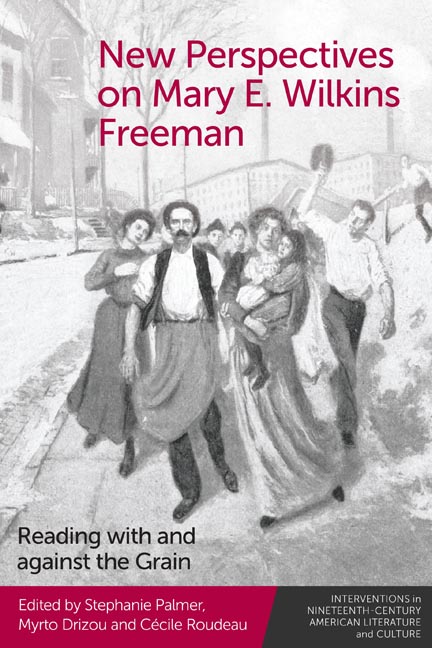Book contents
- Frontmatter
- Contents
- List of Figures
- Acknowledgments
- Contributors
- Reading Freeman Again, Anew
- Part I Kinship Outside of Normative Structures
- Part II Violent, Criminal, and Infanticidal: Freeman’s Odd Women
- Part III Women’s Work: Capital, Business, Labor
- Part IV Periodization Reconsidered
- Afterword: Why Mary E. Wilkins Freeman? Why Now? Where Next?
- Index
8 - “It Won’t Be Long Before the Grind-Mill Gets Hold of Him”:Child Labor in Mary E. Wilkins Freeman’s The Portion of Labor
Published online by Cambridge University Press: 20 October 2023
- Frontmatter
- Contents
- List of Figures
- Acknowledgments
- Contributors
- Reading Freeman Again, Anew
- Part I Kinship Outside of Normative Structures
- Part II Violent, Criminal, and Infanticidal: Freeman’s Odd Women
- Part III Women’s Work: Capital, Business, Labor
- Part IV Periodization Reconsidered
- Afterword: Why Mary E. Wilkins Freeman? Why Now? Where Next?
- Index
Summary
Mary E. Wilkins Freeman has been justly praised for her complex and sensitive portrayals of aging and impoverished women. As Mary R. Reichardt notes, Freeman’s reviewers during her early career “marveled that one so young could write so compellingly about the plight of the destitute and the elderly” (viii). Yet in one of her most powerful novels, The Portion of Labor (1901), Freeman turns her attention away from the hardships of old age to anatomize the plight of the youngest members of society who are similarly imperiled by financial destitution. The Portion of Labor holds an important place in American literature as one of the few works of fiction that focuses on the controversial issue of child labor in the late nineteenth and early twentieth centuries. As one who cherished fond memories of her own childhood, Freeman deplored the theft of education, vitality, and individuality from generations of children who began to work for wages at an early age.
A long and ambitious novel, The Portion of Labor resists easy categorization, as several Freeman scholars have attested. Dorothy Berkson, for example, argues that Ellen Brewster, the novel’s working-class protagonist, “resembles the pure, noble young heroines of Stowe and Dickens, young women whose spirituality is tested and developed through their exposure to the suffering of others” (150), yet Berkson notes that Ellen, “unlike her fictional predecessors … is more than just a spiritual influence, for she works and acts in the public political sphere” (165). Initially balanced “uneasily” between cultural paradigms of the “true woman” and the “new woman,” Freeman’s heroine, in Berkson’s view, ultimately emerges as “essentially the same kind of ‘angel in the house’” (165) familiar to readers of nineteenth-century sentimental novels. While acknowledging the “sentimental” aspects of The Portion of Labor, Mary V. Marchand places the work within a subgenre of women’s industrial reform novels published during the late nineteenth and early twentieth centuries. Marchand contends that novelists such as Rebecca Harding Davis, Elizabeth Stuart Phelps, and Margaret Deland, as well as Freeman, “relied on the trope of industry as enlarged home, activist as public mother, reform as municipal housekeeping” (66).
- Type
- Chapter
- Information
- New Perspectives on Mary E. Wilkins FreemanReading with and against the Grain, pp. 147 - 163Publisher: Edinburgh University PressPrint publication year: 2023

